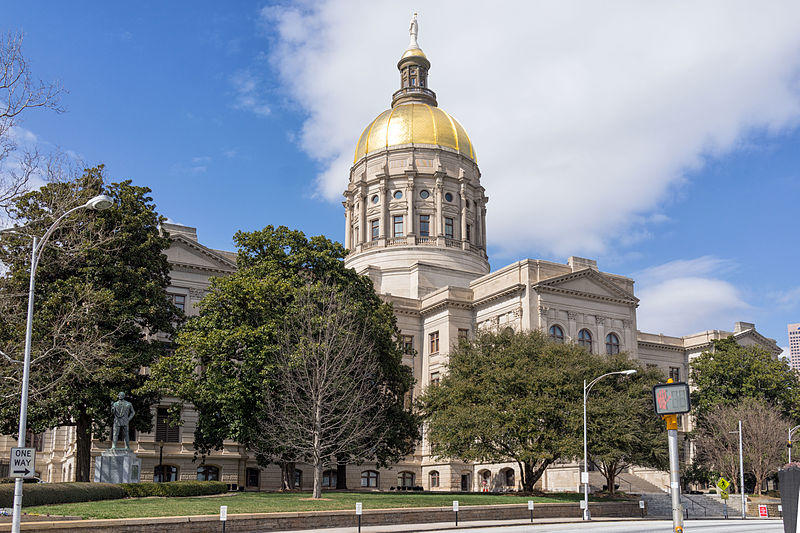Section Branding
Header Content
As Georgia Considers New Hate Crimes Bill, Examining The Implications and Challenges Behind The Law
Primary Content
Georgia is one of four states without a hate crime law. In 2000, state legislators passed a law forbidding acts targeting victims due to "bias or prejudice," but the state Supreme Court struck it down four years later for being too vague.
Repeated efforts to bring a new hate crime law since have failed. Last year, a bill brought by Chuck Efstration, a Republican Representative from Dacula, passed in the Georgia House. It's now up for debate in the state Senate.
'On Second Thought' host Virginia Prescott speaks with Rachel Glickhouse.
There are arguments for and against the legislation. But what exactly does a hate crime law do, and how is it employed in policing and the judicial system?
Rachel Glickhouse is a journalist for ProPublica. She served as partner manager for the publication's "Documenting Hate" project, which published a series of investigative reports about hate crimes in America. She joined On Second Thought to provide a general overview of how hate crime laws work — and how the processes could be improved.
INTERVIEW HIGHLIGHTS
On what a hate crime is, and what the hate crime charge does
So a hate crime is essentially any crime that has been committed — so it could be vandalism, assault, murder — that was committed specifically because the perpetrator had a bias towards the victim. That could have been because of their religion, their race, their having a disability. So that there are laws in place that have specific punishments for those types of crimes... So adding a hate crime charge will add time to a person's sentence, for example. Essentially, the idea is to add penalties upon the existing ones that the person will get for the underlying crime, like, say, assault.
On the inaccurate and low data numbers for hate crimes in the U.S.
So there is FBI data that comes out on a yearly basis, but it is sorely lacking for a couple of reasons. One is that it is not mandatory for police departments to send their data to the FBI, so some simply do not. Many police departments have messy data that might be incorrect and that will make its way into the national data. There are a number of jurisdictions that say they have zero hate crimes in some larger population areas; that sort of begs the question whether that's true or not. Some police don't get proper training and more than 50 percent of hate crime victims don't report to police, so those are simply not reflected at all. So we know that that number is a snapshot of what's happening, but it is not a complete number. So the most recent data is from 2018 and there were around 7,000 hate crimes reported to the FBI. But the Bureau of Justice Statistics does a survey which estimates there could be up to 250,000 hate crimes per year.
On the difficulty of proving that a crime was motivated by bias or prejudice
If [prosecutors] can very clearly prove the underlying crime, say an assault, they are going to want to pursue that with the evidence that they have. But to add that hate crime charge, and to prove that, they have to prove that the person acted specifically out of prejudice. So in cases like, say, the Charleston shooting, that was very clear cut. There was a ton of evidence to show that he was a white supremacist, that he had planned this. But it isn't always that simple and it isn't always easy to show that the person acted out of, specifically, because of their bias.
On the work that needs to happen after a state establishes a new hate crime law
It really is incumbent upon local authorities to actually move forward as a result of the new legislation. So that means not only prosecutors taking on incoming cases, but also to make sure, for example, that police are properly trained and know about the law and the process that they have to go through in order for this to make its way through the system. So it's not going to happen overnight. It really requires some work on behalf of the authorities.
Get in touch with us.
Twitter: @OSTTalk
Facebook: OnSecondThought
Email: OnSecondThought@gpb.org
Phone: 404-500-9457



